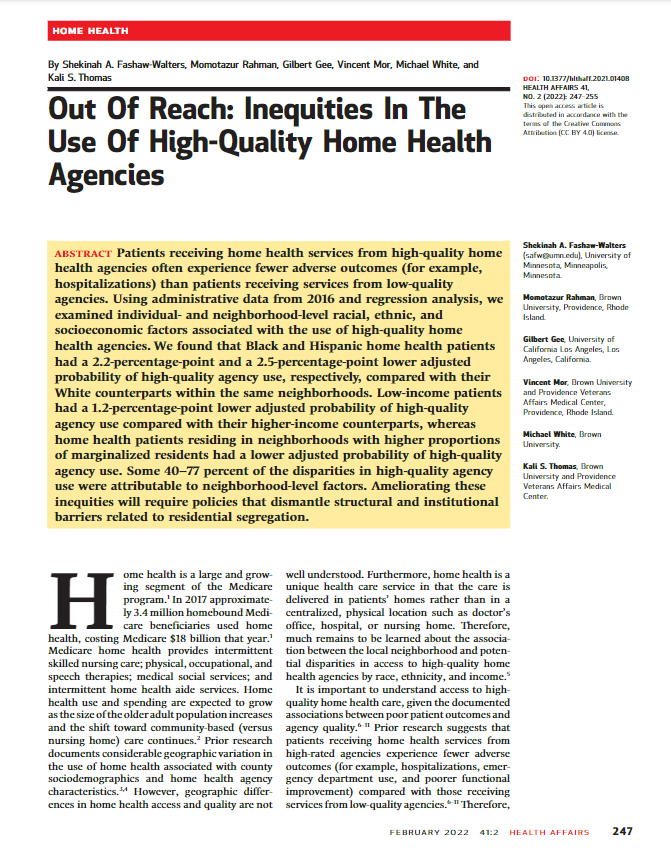Headline
Black, Hispanic, and low-income patients are significantly less likely to receive care from high-quality home health agencies.
Context
Medicare home health care provides physical and speech therapies, medical social services, and intermittent skilled nursing care and home health aide services. Patients receiving these services from highly rated home health agencies have better outcomes than from low-quality agencies. This study examined whether individual and neighborhood racial, ethnic, and socioeconomic characteristics were associated with whether patients received care from a highly rated home health agency, measured by the Quality of Patient Care star ratings.
Findings
Black, Hispanic, and low-income Medicare individuals were significantly less likely to have received care from high-quality home health agencies compared to white and/or higher-income counterparts in the same neighborhoods. These disparities in access to high-quality home health care exist at the neighborhood and individual level after adjusting for patients’ health status. The authors estimated that between 40-77 percent of the observed individual-level disparities could be attributable to the neighborhoods where patients live. As segregation and institutional racism affect where patients live and what providers will serve those areas, people living in neighborhoods with higher shares of Black, Hispanic, and low-income individuals have lower access to high-quality home health services.
Takeaways
Policymakers should explore strategies to address these disparities, such as incentivizing high-quality home health agencies to serve predominantly Black, Hispanic, and low-income neighborhoods and reallocating resources to communities that have been marginalized. Since neighborhood-level factors account for much of these disparities, policy solutions to address these inequities in home health care will ultimately need to address residential segregation and institutional racism.



